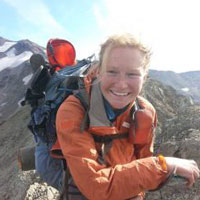WELCOME TO THE SCHOOL OF BIOLOGICAL SCIENCES
We are a large and collaborative community studying all aspects of biology. We provide exceptional opportunities to learn, work, and collaborate across many levels of biological organization and styles of research in the heart of Mountain America. The School is committed to expanding equity and inclusion to make our community as strong and diverse as our research. Whether you’re a transfer student, first-generation college student, graduate student, or postdoctoral fellow looking for that perfect classroom or research experience with a mentor, the School of Biological Sciences wants to hear from you.
WHY STUDY BIOLOGY AT UTAH?
Exceptional opportunities to learn, work, and collaborate across many levels of biological
organization and styles of research in the heart of Mountain America.
Events
INTERESTED IN STUDYING BIOLOGY?
Apply to a leading research institution, the School of Biological Sciences at the University of Utah.
PROSPECTIVE STUDENTS






